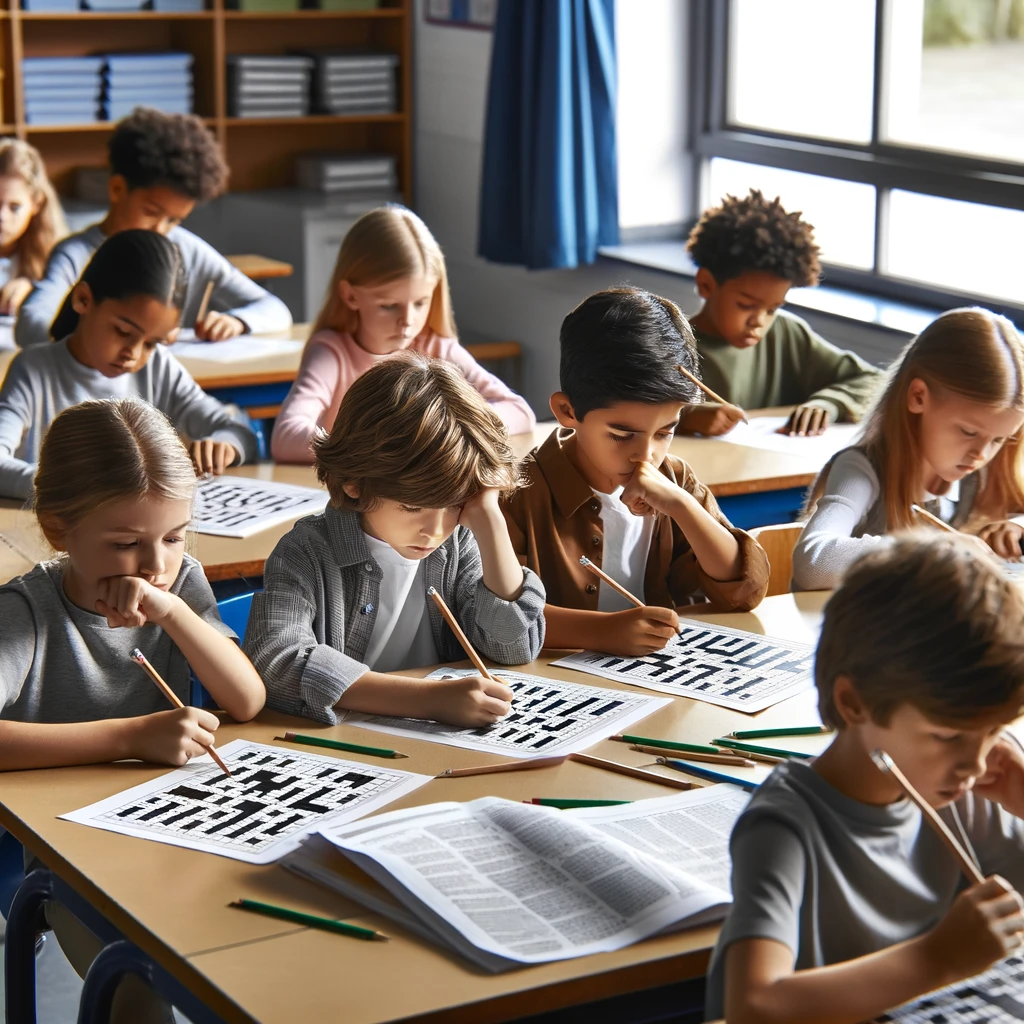As an elementary school teacher, I’ve witnessed firsthand the joy and benefits that crossword puzzles can bring to the classroom. These seemingly simple word games are more than just a fun activity; they are powerful tools that support learning, enhance literacy, and foster a love for language among young learners. Here’s why crossword puzzles are an invaluable addition to any educational toolkit.
1. Building Vocabulary and Spelling Skills
One of the most apparent benefits of crossword puzzles is their ability to expand a child’s vocabulary and improve spelling. As children work to decipher clues and find the correct words to fit into the puzzle grid, they are introduced to new words and concepts. This not only enhances their vocabulary but also reinforces spelling through repetition and engagement. The joy of solving a clue correctly provides immediate positive reinforcement, encouraging them to explore language further.
2. Enhancing Problem-Solving and Critical Thinking
Crossword puzzles challenge children to think critically and develop problem-solving skills. Each clue is a puzzle to be solved, requiring students to think creatively and use logic to deduce the correct answer. This process of hypothesis, testing, and revision mirrors the scientific method, teaching children to approach problems methodically and with perseverance.
3. Promoting Concentration and Focus
In our fast-paced, distraction-filled world, fostering concentration and the ability to focus is crucial for young learners. Working on crossword puzzles demands a level of attention and concentration that is increasingly rare among children bombarded by multimedia stimuli. The satisfaction of completing a puzzle provides a compelling incentive for children to maintain their focus over extended periods, building their capacity for concentration.
4. Supporting Social Skills Through Cooperative Learning
While crossword puzzles can be a solitary activity, they also offer wonderful opportunities for cooperative learning. Children can work together in pairs or small groups to solve puzzles, discussing clues, brainstorming possible answers, and negotiating solutions. This collaborative approach not only makes the task more enjoyable but also enhances social skills such as communication, negotiation, and the ability to work effectively in a team.
5. Making Learning Fun and Engaging
Perhaps most importantly, crossword puzzles make learning fun. They transform vocabulary and spelling practice from a mundane task into an engaging game. When children are having fun, their motivation to learn increases, and they are more likely to absorb and retain information. Moreover, the versatility of crossword puzzles means they can be tailored to any subject area, from science and history to math and languages, making them a versatile tool in any teacher’s arsenal.
Incorporating Crossword Puzzles into Classroom Activities
Incorporating crossword puzzles into classroom activities is straightforward and rewarding. They can be used as a warm-up exercise to start the day, a relaxing break between lessons, or a rewarding activity at the end of the week. There are numerous resources available for teachers, from online databases of age-appropriate puzzles to crossword puzzle generators that allow you to create custom puzzles tailored to your curriculum.
Conclusion
As educators, our goal is to inspire a love of learning in our students. Crossword puzzles offer a unique blend of linguistic, cognitive, and social benefits, making them an ideal educational tool. They encourage children to explore language, develop critical thinking skills, and learn cooperatively, all while having fun. So next time you’re planning your lessons, consider adding a crossword puzzle to the mix. You might be surprised at just how beneficial — and enjoyable — they can be for your students.
